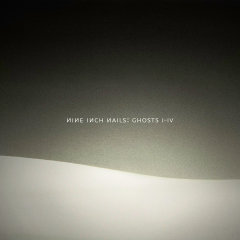NIN: Ghosts and its CC license - a not so positive view
 With all this fuss about the Nine Inch Nails: Ghosts release under a Creative Commons license i feel compelled to ask a naive question (or it is an annoying question which renders me a a first class nitpicker?).
With all this fuss about the Nine Inch Nails: Ghosts release under a Creative Commons license i feel compelled to ask a naive question (or it is an annoying question which renders me a a first class nitpicker?).
Quote from their readme, distributed inside the official torrent:
We encourage you to share the music of Ghosts I with your friends, post it on your website, play it on your podcast, use it for video projects, etc. It's licensed for all non-commercial use under Creative Commons.
So my question is: if I use AdSense or something similar on my website, is legal or not to share there? But if I have a button for PayPal donations to a FOSS project?
Of course I already know the answer and it is no, as those can be interpreted as commercial activities (even if the AdSense usage is intended to barely cover the hosting price and a FOSS project is a non-profit).
But this is not why I find this release useless, I find it useless because I can't use this music as soundtrack for my screencasts, which are released under CreativeCommons Attribution Share Alike, so incompatible with the Non Commercial clause.
So are you confused by the too many Creative Commons licensing options?




Licenses are for people who care (like lawyers, artists, and free software contributers), and are not meant for normal users, since normal users don't really care unless it's free as in price (sad, but true).
ReplyDeleteI am skeptical about the willingness of artists to release their work licensed under "free as in freedom" licenses, and thus I'm perfectly fine with non-commercial licenses.
See, I don't find that album that great to listen all day long to it or to spread it because I am a huge fan.
ReplyDeleteI am interested in it if I can make use of it, but the NC clause make it incompatible with both CC-BY-SA and GPL, basically it is non-free. The only freedom it grants to me is to seed it on the BitTorrent network and don't feel guilty about that. Quite weak as a freedom (yes, I know, baby steps... it helps legitimate file sharing, change the perception about free culture but...)
The non-commercial CC licenses are basically free as in beer licenses rather than Free as in Freedom licenses. So it's a nice step forward, especially given the nature of the music business, but yes, it would be even nicer to start seeing things under more Free licenses.
ReplyDeleteAnd the number of CC licenses is less than the number of free software licenses still, so I think that confusion is inherent in the territory
I post my photo stuff under NonCommercial/Attribution/ShareAlike because it seems there's a huge amount of folks looking for free audio/video that don't give back to the commons. I believe the GPL offers much stronger controls and people pay greater attention to software licenses.
ReplyDeleteBasically I use the CC as a way to indicate to people using content what kinds of content usage are permissable without them asking, but I'm not doing to make it Free-As-In-Beer at all.
And I am using CC-BY-SA to indicate the permissions/restrictions. When I want to give free-for-all (I do that sometimes) I use PD (also with a handy CC definition).
ReplyDeleteI don't use NC as I find it too restrictive and confusing (there are borderline cases where is hard to say what is/is not commercial).
In fact, IIRC CreativeCommons is working on licenses that more clearly define "Commercial activities" so you can specify e.g. whether people are allowed to share it on ad-enabled sites. You can look forward to even mroe licenses ;)
ReplyDeleteMy real question is, are there things we can do to make more artist want to free up content in a way that we can use it as part of open source offerings.
ReplyDeleteObviously not top-shell artists.. but are there things we can do that would encourage artists to provide CC'd music, video and artwork that we could remix and use/distribute/host as part of Fedora?
Could we do a better job of giving attribution to individual artists who's original work is part of a collaborative mix?
How do we tell a compelling story to persuade artists to use one of the freer Fedora-compatible CC licenses?
-jef
I agree with Alex. This license benefits average users and kids who want to make mash-ups for their blogs. It's a step in a good direction, but I can totally understand their desire to control commercial use of their work.
ReplyDeleteSorry it doesn't meet your wants and needs, but there's plenty of music over at ccmixter that does (though it would be nice if you could limit search results to certain license types).
Right on the spot Jef. What can we do?
ReplyDelete- in Fedora in general maybe include a few songs by default in the desktop spin, put some bookmarks to websites where their music can be found, pre-configure Rhythmbox with such music sources (like Jamendo);
- on a personal level, but this is also as part of the Fedora universe, play with their music (soundtrack in screencasts and such), talk about they on our blogs, share our music preferences on Mugshot, last.fm and such...
What can we do more?